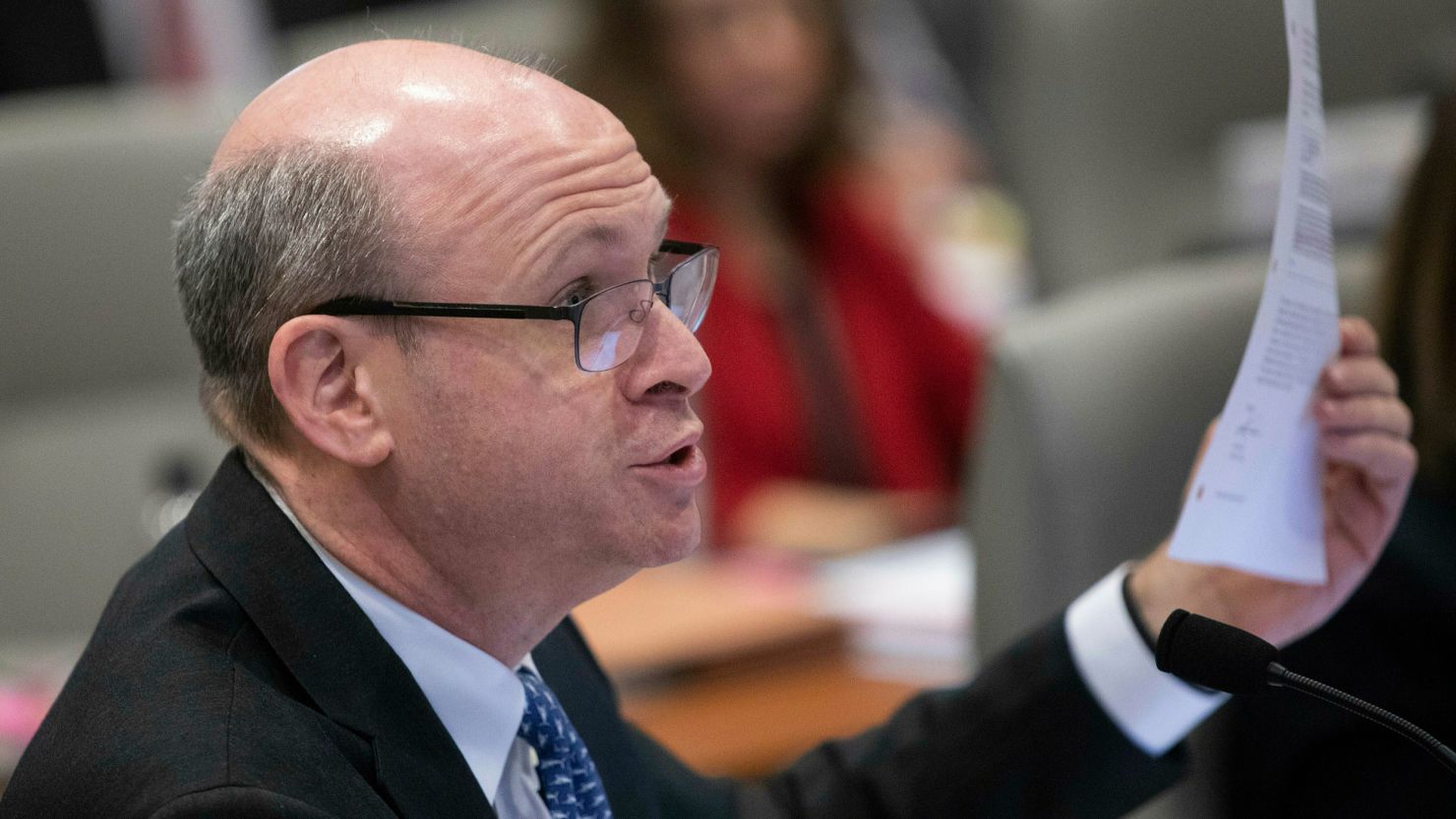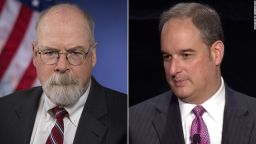Special counsel John Durham has used his first trial as a vehicle to air some of the Hillary Clinton campaign’s dirty laundry, but that was derailed Wednesday when the campaign’s top lawyer, Marc Elias, promptly used his testimony to slam Donald Trump and the FBI for how they responded to Russian interference in the 2016 election.
Durham’s case against a different Clinton campaign lawyer, Michael Sussmann, is the first courtroom test of his three-year probe into potential misconduct in the FBI’s early Trump-Russia investigation. Sussmann has pleaded not guilty to one count of lying to the FBI during a September 2016 meeting where he passed along a tip about Trump’s potential ties to a Russian bank.
To make his case, Durham has relied on witnesses unlikely to be sympathetic to his inquiry, which has been celebrated by Trump and right-wing commentators. One of those witnesses on Wednesday was Elias, a well-known election attorney who has been a senior lawyer for the past five Democratic presidential candidates and was Clinton’s general counsel in 2016.
Elias called Trump a “bully” and excoriated Trump’s reaction to the Russian hacks and leaks of Democratic National Committee emails, which rocked the party convention in July 2016 by driving a wedge between supporters of Clinton and Sen. Bernie Sanders at a pivotal moment.
“There was clearly an attempt by Russia to ruin the one clean shot that candidates get to talk to the American public,” Elias said, adding that he believed the campaign was under attack. “And instead of doing what any decent human being would do, and condemn it, Donald Trump said, ‘I hope Russia is listening and will find the 30,000 Hillary Clinton emails … and release them.’”
Durham’s star witness – former FBI general counsel James Baker – also took the stand on Wednesday and will return Thursday for more testimony. He’s a key part of the case because he’s the FBI official who met with Sussmann to receive the Trump-Russia tip, when Sussmann allegedly lied about bringing the material on his own, and not on behalf of Clinton’s campaign.
Baker told jurors that Sussmann texted him on his personal phone one night before the meeting, asking to discuss a sensitive matter. Sussmann also wrote, “I’m coming on my own – not on behalf of a client or company – want to help the Bureau.” Prosecutors claim Sussmann repeated this assertion during the meeting, which forms the basis of the single false statement charge. The text is one of Durham’s strongest pieces of evidence against Sussmann, because it shows his own words before he met Baker, who didn’t take notes during the meeting.
Elias: FBI wasn’t ‘particularly helpful’
Elias used his three-hour appearance on the witness stand to turn the tables on Durham’s primary narrative that Clinton’s campaign led an effort to manipulate the FBI for political means. Instead, Elias painted the campaign as the victim of bias from the highest levels of the FBI, as well as the victim of Russian hacks and election meddling.
He said the FBI had “not been particularly helpful in investigating” the Russian cyberattacks against the Democratic National Committee “or doing anything to prevent the leaks of the emails” that were put out by WikiLeaks throughout 2016, giving endless fodder to Trump, political reporters and social media trolls.
“The FBI, for a variety of reasons, was not going to do anything to stop these bad things from happening,” Elias said, teeing off a rebuke of former FBI Director James Comey, who famously oversaw the Clinton email investigation. “James Comey had taken public stances around that time period that were, in my view, unfair, and putting the thumb on the scale against Secretary Clinton.”
Comey has defended his actions, including his controversial July 2016 news conference where he criticized Clinton’s handling of classified material but said she wouldn’t be charged. He said he did this not to hurt Clinton’s political aspirations but rather to protect the FBI’s reputation.
Prosecutors also used Elias’ testimony to show how Sussmann billed the Clinton campaign for his phone calls and meetings about the Trump-Russia cyber allegations that he eventually brought to the FBI through Baker. According to the indictment, Sussmann billed the Clinton campaign for his meeting with Baker, even though he said he wasn’t there for any client.





